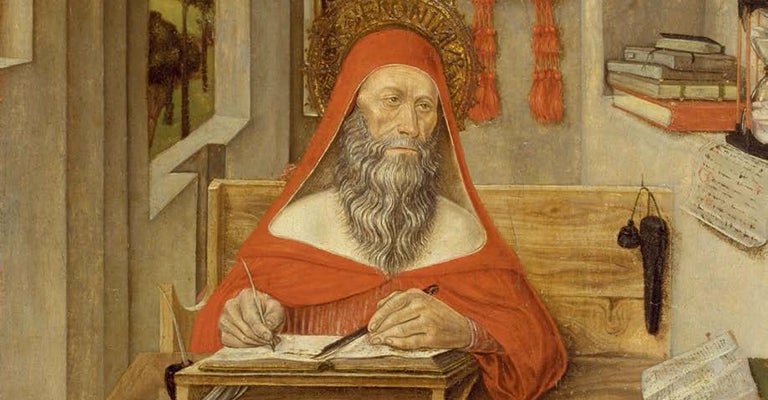Celenza Publishes Two New Books on Italian Renaissance

Georgetown College Dean Christopher S. Celenza published two books on Italian Renaissance this winter, including The Intellectual World of the Italian Renaissance: Language, Philosophy, and the Search for Meaning (pictured).
January 19, 2018 — Georgetown College Dean Christopher S. Celenza did not let a busy 2017 get in the way of his scholarly writing.
Celenza published his sixth book, Petrarch: Everywhere A Wanderer in December 2017; his seventh, The Intellectual World of the Italian Renaissance: Language, Philosophy, and the Search for Meaning, is due out this month.
THE FATHER OF ITALIAN
Petrarch: Everywhere A Wanderer is a biography of the Italian Renaissance poet and philosopher Francesco Petrarca, who is considered to be the father of modern Italian language and wrote poetry in both Italian and Latin that would influence writers in his native country and across the world for centuries.
“Petrarch, while not the first Italian medieval thinker to look back to antiquity for inspiration, was indeed the first to coalesce those classicizing energies into a lasting cultural movement,” Celenza said.
The 224-page book examines the complicated life and legacy of the 14th-century thinker, whose career and poetic themes often come off as paradoxical. Celenza made an effort to make his interpretation accessible to readers beyond the world of expert Renaissance scholars.
“It was an exciting challenge to write about such a monumental figure, trying as ever to make his life and work accessible to educated readers,” Celenza said.
Petrarch: Everywhere A Wanderer is Celenza’s first contribution to the Renaissance Lives series, a collection of biographies from the United Kingdom’s Reaktion Publishers that includes profiles of figures like Michelangelo, Hieronymus Bosch, and Isaac Newton.
LANGUAGE AND INTELLECTUAL LIFE
Later this month, Cambridge University Press will publish another book from Celenza, The Intellectual World of the Italian Renaissance: Language, Philosophy, and the Search for Meaning. This book picks up chronologically where Petrarch leaves off, focusing on the history of Italian intellectuals in the period stretching from 1350 to 1525.
Bookended by the careers of Petrarch and Niccolo Machiavelli, intellectual life in this period has been frequently passed over in Renaissance histories. Celenza offers new interpretations of the history of Renaissance philosophy, literature, and overall intellectual life.
“There was a rich interplay in this period between the Latin language and an evolving Italian vernacular,” Celenza said. “My hope in the book is to bring that interplay to life and to show it was one of the central threads in the rich tapestry that Italian Renaissance intellectual life represents.”
The Intellectual World of the Italian Renaissance provides a closer look at some lesser-known humanist philosophers, educators, and historians of the period, including Leonardo Bruni and Poggio Bracciolini, Lorenzo Valla, Marsilio Ficino, Angelo Poliziano, and Pietro Bembo.
“Most of the figures treated in this book are little known, outside of specialist communities, even as their contemporaries in the arts – figures like Brunelleschi, Botticelli, and Michelangelo – are,” Celenza said. “My hope is that this book will give them their due, as well as exposing their thinking to scholars in other, related fields.”
A WORLD-CLASS EXPERIENCE
Celenza wrote his latest books in 2016 and 2017, while serving as Vice Provost for Faculty at Johns Hopkins University and transitioning to his role of Dean of Georgetown College.
Six months into his term, Celenza reports that he is thrilled with his new role. He looks forward to teaching an Ignatius Seminar in the fall, as well as continuing to think and write about intellectual history in the early morning hours.
“Leading Georgetown College has been the greatest privilege of my career,” Celenza said. “I am honored to count myself a colleague alongside the College’s many excellent scholars, and most of all to focus on the world-class educational experience the College offers to Georgetown’s many fine undergraduate students,” he said.